
Colonel George Robert Canning Harris, 4th Baron Harris,, generally known as Lord Harris, was a British colonial administrator and Governor of Bombay, best known for developing cricket administration via Marylebone Cricket Club (MCC).
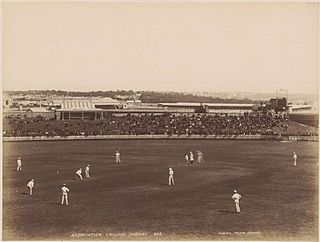
The Sydney Riot of 1879 was an instance of civil disorder that occurred at an early international cricket match. It took place on 8 February 1879 at what is now the Sydney Cricket Ground, during a match between New South Wales, captained by Dave Gregory, and a touring English team, captained by Lord Harris.

Frederick Robert Spofforth, also known as "The Demon Bowler", was an Australian cricket team pace bowler of the nineteenth century. He was the first bowler to take 50 Test wickets, and the first to take a Test hat-trick, in 1879. He played in Test matches for Australia between 1877 and 1887, and then settled in England where he played for Derbyshire. In 2009, he was inducted into the ICC Hall of Fame.

William Lloyd Murdoch was an Australian cricketer who captained the Australian national side in 16 Test matches between 1880 and 1890. This included four tours of England, one of which, in 1882, gave rise to The Ashes. In 2019 Murdoch was inducted into the Australian Cricket Hall of Fame.
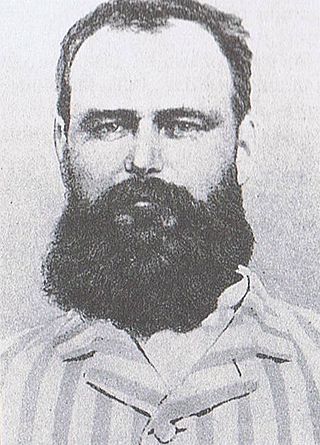
David William Gregory was an Australian cricketer. A right-handed batsman, Gregory was the first Australian national cricket captain, leading the side for the first three recognised Test matches between England and Australia in March and April 1877 and January 1879. Gregory was also the captain of the New South Wales team, notably during the Sydney Riot of 1879 when he rebelled against an unpopular decision by Victorian umpire George Coulthard during a game against the touring English team.
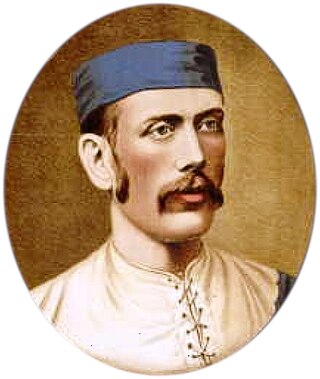
George Coulthard was an Australian cricketer and Australian rules footballer.
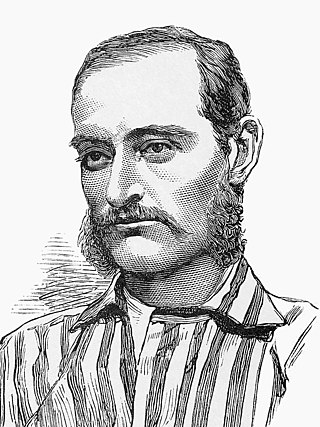
Francis Erskine Allan was an Australian cricketer who represented Victoria in first-class intercolonial matches and made one Test appearance for Australia. A tall, wiry left-arm medium pacer known by the sobriquet "The Bowler of a Century", Allan possessed great spin and a peculiar swerve which he claimed to have developed through his use of boomerangs and waddies growing up amongst Aborigines in the Victorian bush. He was also given the nickname "Kangaroo" because he would jump like a kangaroo to celebrate taking a wicket.

Edwin "Ted" Evans was an Australian cricketer who played in six Test matches between 1881 and 1886.

Intercolonial cricket matches were the first-class cricket matches played between the various colonies of Australia prior to federation in 1901. After federation, they became known as Interstate matches. By the 1880s regular intercolonials were being played, generally with intense rivalry. Matches against visiting professional teams from England also attracted public interest.

Francis Adams Iredale was an Australian cricketer who played 14 Test matches between 1888 and 1902.

Charles Lawrence was an English cricketer, who played for Scotland, Ireland and England he settled in Australia after touring with the England side in 1861–62. He played for Surrey, England, Captain coach New South Wales, but is most notable as the captain-coach of the Aboriginal cricket team that toured England in 1868, the first ever tour of England by an Australian team.

From May to September in 1878, an Australian cricket team made the inaugural first-class tour of England by a representative overseas side. In October, the Australians played additional matches in the US and Canada on their return journey. The tour followed one made by an England team to Australia in 1876–77, during which the first matches retrospectively given Test match status were played. None of the 1878 matches had international status, nevertheless the tour proved to be such an outstanding financial and sporting success that the future of international cricket was assured.
This is an article that describes the history of Australian cricket from its known beginnings until the eve of the first-ever Test matches between Australia and England, which took place in the 1876–77 season.
This article describes the history of Australian cricket from the 1876–77 season until 1890.
An English cricket team captained by Lord Harris toured Australia and New Zealand in 1878–79 in a private tour organised by the Melbourne Cricket Club. The team's match against Australia in January 1879 was retrospectively given Test match status, making it the third Test ever and the third between Australia and England, though it was not part of The Ashes which began in 1882.

An England cricket team toured Australia, New Zealand and the United States between September 1881 and March 1882. The tour was privately organised by the professional players James Lillywhite, junior, Alfred Shaw and Arthur Shrewsbury. In all matches other than Tests, the team was called A. Shaw's XI. In Australia, the tour itinerary consisted of seven first-class matches, including a four-match Test series against Australia. The Test series was won 2–0 by Australia with two matches drawn. The Ashes, which began later in 1882, were not at stake. None of the matches in either New Zealand or the United States have been ascribed first-class status.
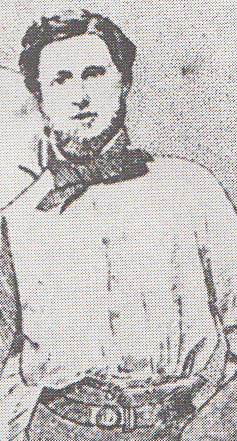
William Josiah Sumner Hammersley was an English-born first-class cricketer and sports journalist in Victoria, Australia, one of the four men credited with setting down the original rules of Australian rules football.
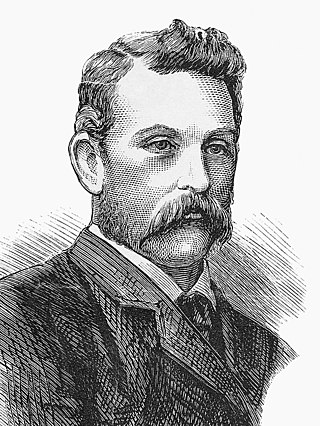
John "Jack" Conway was an Australian cricketer who played first-class cricket from 1861–62 to 1879–80. He organised the first Test match in March 1877, and Australia's first cricket tour in 1878. He was also an accomplished Australian rules footballer who captained the Carlton Football Club between 1866 and 1871.
James Brodie was an Australian cricketer. He played three first-class cricket matches for Victoria.
The Rest of Australia cricket team was a domestic first-class cricket team in Australia that played intermittently between 1872/73 and 1939/40.















